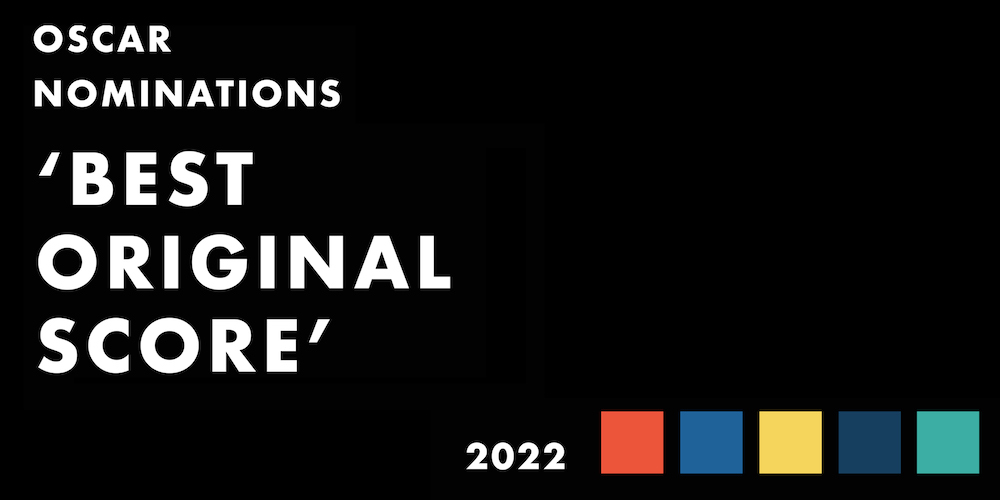
Academy Award Nominations for Best Original Score 2022
Dune - Hans Zimmer
 Easily the most recognisable name in the list, ‘Dune’ will be the twelfth academy award
nomination for master composer Hans Zimmer (winning in 1994 for Disney’s ‘The Lion King’).
Zimmer supposedly turned down Christopher Nolan; with whom he has created some of his best and
previously Oscar nominated scores (‘Interstellar’, ‘Inception’ and ‘Dunkirk’) in order to write the score
for Denis Villeneuve’s adaption of Frank Herbert’s sci-fi epic.
Easily the most recognisable name in the list, ‘Dune’ will be the twelfth academy award
nomination for master composer Hans Zimmer (winning in 1994 for Disney’s ‘The Lion King’).
Zimmer supposedly turned down Christopher Nolan; with whom he has created some of his best and
previously Oscar nominated scores (‘Interstellar’, ‘Inception’ and ‘Dunkirk’) in order to write the score
for Denis Villeneuve’s adaption of Frank Herbert’s sci-fi epic.
As we have come to expect of Zimmer, the sound for Dune is vast, sweeping and evocative of the story’s predominant setting, the desert planet Arrakis. There is heavy use of choral vocal here, with a particular emphasis on the female voice (Villeneuve wanted the score to be “spiritual” and “as feminine as possible”) reflecting the power and exoticism of the women in the film. It is a predominantly electronic leaning score and newly invented synths are applied to traditional instruments to give an otherworldly quality. Who else could make bagpipes sound like they belong on an alien planet in the future?
Encanto - Germaine Franco
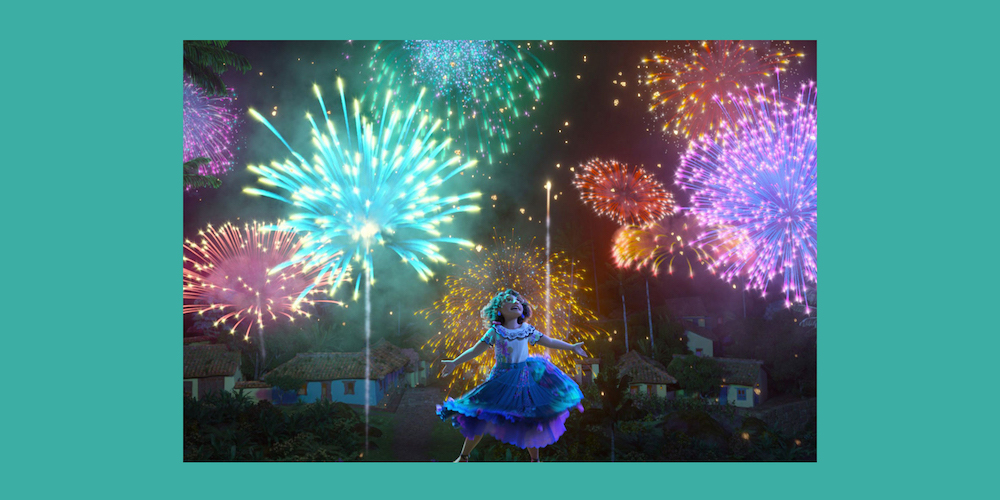 This is Franco’s first Oscar nod for the first Walt Disney Animation scored by a woman (she had previously scored Pixar’s ‘Coco’),
appropriate in this magical, female driven story. While Hamilton’s Lin Manuel Miranda’s catchy songs draw the most attention
(‘We Don’t Talk About Bruno’ topping charts worldwide and ‘Dos Orugitas’ winning Miranda his own academy nomination for Best Original Song)
Franco’s score underpins them charmingly ticking along behind the action.
This is Franco’s first Oscar nod for the first Walt Disney Animation scored by a woman (she had previously scored Pixar’s ‘Coco’),
appropriate in this magical, female driven story. While Hamilton’s Lin Manuel Miranda’s catchy songs draw the most attention
(‘We Don’t Talk About Bruno’ topping charts worldwide and ‘Dos Orugitas’ winning Miranda his own academy nomination for Best Original Song)
Franco’s score underpins them charmingly ticking along behind the action.
As ‘Encanto’ takes place in a Columbian village a la Marquez’s ‘One Hundred Years of Solitude’, Franco fittingly leans into traditional South American influence and instrumentation, albeit necessarily “Disney-fied” to create the bright, exotic soundscapes which all lead back to the familiar casita. This enchanted house is a character in itself, which provides the back drop for Mirabel’s story and is mirrored in Franco’s music, the score becoming Casita Madrigal’s voice throughout the film.
The Power of the Dog - Jonny Greenwood
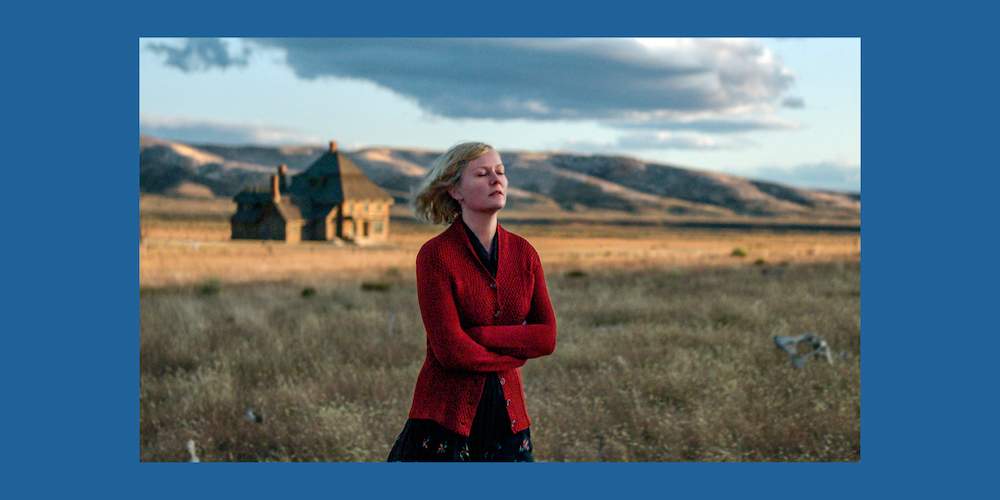 Radiohead’s’ Jonny Greenwood has not one but three film scores garnering Oscar buzz this year (he also composed for ‘Spencer’ and his long-time c
ollaborator Paul Thomas Anderson’s ‘Licorice Pizza’) but his score for Jane Campion’s ‘The Power of the Dog’ has won him his second nomination, the
first being for the aforementioned Anderson’s ‘Phantom Thread’ in 2017.
Radiohead’s’ Jonny Greenwood has not one but three film scores garnering Oscar buzz this year (he also composed for ‘Spencer’ and his long-time c
ollaborator Paul Thomas Anderson’s ‘Licorice Pizza’) but his score for Jane Campion’s ‘The Power of the Dog’ has won him his second nomination, the
first being for the aforementioned Anderson’s ‘Phantom Thread’ in 2017.
The score itself is a wealth of contrasts, slow melodic ballads (‘West Alone’) against frenetic, foreboding staccato strings (‘Mimicry’). It plays beautifully as a full suite, with a constant sense of tension underpinning the unusual instrumentation; in particular, the featured use of the mechanical toy piano on both ‘Paper Flowers’ and ‘Detuned Mechanical Piano’ which manages to feel both familiarly nostalgic and menacing at the same time. There is an air of violence and repression to the whole score as it goes from quiet to frantic, mirroring the plot of the film and the unease felt by all the characters throughout; making Greenwood’s score the perfect storytelling accompaniment to this literary film.
Don’t Look Up - Nicholas Britell
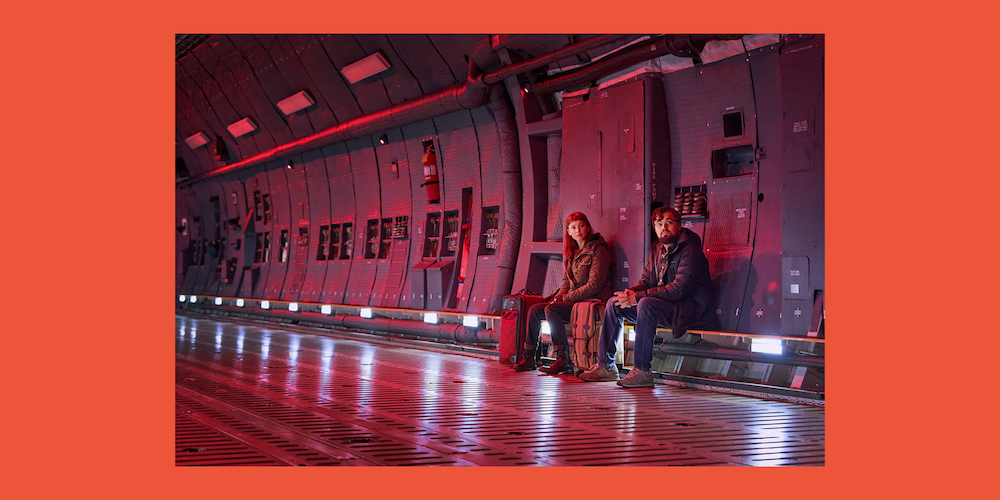 ‘Don’t Look Up’ marks Nicholas Britell’s third nomination in six years and fourth collaboration with director Adam McKay.
His previous nods however were both for the acclaimed films of Barry Jenkins; ‘Moonlight’ and ‘If Beale Street Could Talk’.
These scores have an emotional weight which is astounding, ‘Beale Street’ being one of my favourite scores of the last decade.
‘Don’t Look Up’ is entirely different, restless and urgent, this contrast demonstrating Britell’s huge talent across genres.
‘Don’t Look Up’ marks Nicholas Britell’s third nomination in six years and fourth collaboration with director Adam McKay.
His previous nods however were both for the acclaimed films of Barry Jenkins; ‘Moonlight’ and ‘If Beale Street Could Talk’.
These scores have an emotional weight which is astounding, ‘Beale Street’ being one of my favourite scores of the last decade.
‘Don’t Look Up’ is entirely different, restless and urgent, this contrast demonstrating Britell’s huge talent across genres.
The films heavily jazz influenced main theme is a constant throughout the score, which eclectically flits from orchestral melodies to big band bombast inlaid with unusual instrumentation. It has a heightened, busy feel as a whole, reflecting the absurdity and satire of the story which sees the world due to end by asteroid while the capitalists monetise and the conscious despair. The score seems as self-aware as the film, tinged with humour and hopelessness; bookmarked by tracks by Ariana Grande, Kid Cudi and Bon Iver, making it the most commercial of the nominations this year.
Parallel Mothers - Alberto Iglesias
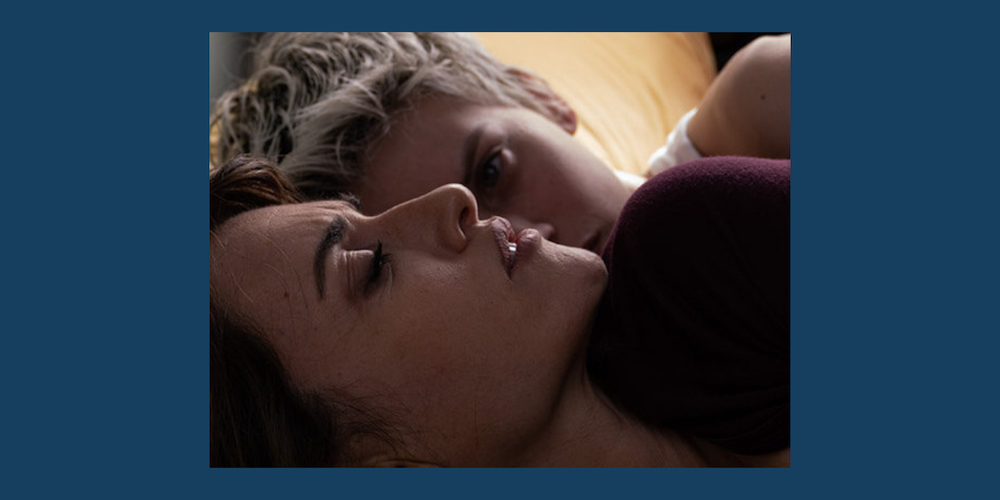 This score is the thirteenth that Iglesias has written for a Pedro Almodóvar film and his fourth nomination in this category
(‘Parallel Mothers’ is the first of his nominated scores for a film in his native Spanish). Iglesias’s scores have become
synonymous with Almodóvar’s distinct style; illustrating in his music the intense themes often chosen by the director: passion,
perversion, family, camp, sexuality and femininity to name but a few.
This score is the thirteenth that Iglesias has written for a Pedro Almodóvar film and his fourth nomination in this category
(‘Parallel Mothers’ is the first of his nominated scores for a film in his native Spanish). Iglesias’s scores have become
synonymous with Almodóvar’s distinct style; illustrating in his music the intense themes often chosen by the director: passion,
perversion, family, camp, sexuality and femininity to name but a few.
The score itself has a balletic theatricality to it, almost as if the intention was for the story to be so clear in the music that the dialogue is not essential. Strings lead the pieces throughout, their sounds ranging from sinister Hitchcockian foreboding (‘Terrible certaza’) to operatic melodrama (En procesión/La fosa). The score feels emotionally hyperbolic and unpredictable, mirroring the intensity of the change women face upon becoming mothers and the amplified emotions that suddenly become the status quo from the moment your child is born, for better or worse.
And the Oscar goes to …
At a guess, I think this will be Jonny Greenwood’s year.
